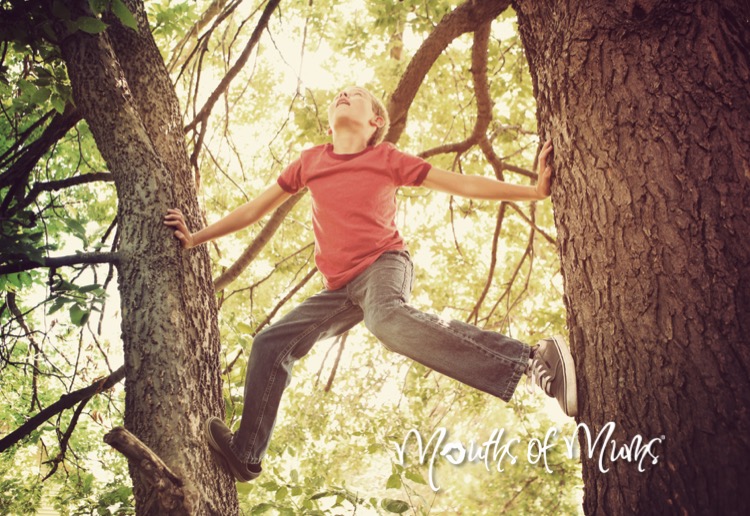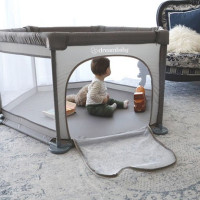A lot of parents have concerns about their children’s self confidence and their children’s ability to not give up if something is proving a little difficult.
I often have parents come to me asking questions like:
- “How can I get my child to stop saying they can’t do it without even trying?”
- “My child has such a low opinion of themselves, what can I do?”
- “How can I help my child be more outgoing and happier?”
All these questions lead to the parent’s concern that the child is showing a lack of self-confidence. The parent usually feels this isn’t right and isn’t going to be beneficial for their child in the future.
We have a saying in our house, “O’Callaghans never give up”. It arose from Joseph, our youngest child, going through a stage of saying, “I give up.” He was about four and must have picked it up from day care or his older siblings as I’m sure I never said it—well, fairly certain anyway.
Joseph would be building blocks, carefully placing one on top of the other, and then a large crash would be heard. I would enter the room to see him standing defiantly looking at the pile of blocks, angry face on, and he would be repeating, “I give up, I just give up, I give up.”
The possible enormity of the situation hit me—that if I don’t come up with something soon to change his attitude, it would turn into a life limiting habit. I wanted my son to be mentally and emotionally strong. I wanted my son’s cup to be full, not half-full, not half empty, FULL.
We started saying, over and over again, “Try again because O’Callaghans never give up.” This mantra has grown to include all of us now, and we have developed a very strong culture in our home of never giving up, thanks to those damn blocks.
I believe that self-esteem is the value one puts on them, and confidence is a self-belief that they can do it.
So one is how you feel about you, and the other is that you have practised and know you can do it. Therefore confidence is gained by doing and self-esteem is gained by knowing (or being encouraged) that you are valuable and capable. One cannot go without the other.
Children come into this world full of worth and asking for what they want. As parents it is our role to keep this sense of self worth healthy. Below I have outlined some suggestions of how we, as parents, can direct this in-built determination and persistence in tact, guiding it around appropriate boundaries and safety rules as our children grow. This then will allow your child to believe that they are capable of achieving many things as long as they show determination, practise and commitment – because they are worth it and super clever in their own way.
Modelling is the primary way to teach children good habits. They watch their parents and listen to them constantly, often when the parents are unaware. They watch and listen for verbal and non-verbal reactions to everything everyday. Children feel when situations are happy, sad, threatening, stressful and joyous. The child picks up on all the actions and reactions, even non-actions, to all situations by their parents and learns how it should be done and begins to develop certain belief systems.
Begin now and for the next week observing and listening to how you and your family:
- Show your confidence,
- Show your self-worth, and
- The behaviours and reactions day to day you are showing (teaching) your children.
It is important to remember this is not for you, or anyone else, to negatively judge these behaviours or put another layer of parenting guilt on yourself.
It is for you to become the best parent possible, which is the parent your child needs – which is what most parents ultimately want. You get so many things right by practising what doesn’t work first.
I really resonate with the saying, “making mistakes is proof you are trying.”
You can then move on to supporting an affirmative belief system for your child. This is telling them often:
- You love them
- How important they are just the way they are
- They matter and that their presence in your world and the world of others makes a difference
- You have caught them out more times being great, and not less than expected, and
- Each day how grateful you are for them and congratulating your child for big and little milestones reached or achievements.
I like to also make sure that there is a habit of paying it forward to others. My children hear me, and are encouraged to, praise others or speak of them in a positive and supportive way. It really does come back to the saying, “If you have nothing nice to say, say nothing.”
Next is putting it all into practise with an I Can Do It attitude.
I Cant’s just need proof that this is not true. How do you get this proof? Just do it – with guidance, encouragement, a bit of patience and support, then repeat, and repeat again. Let your child do as much as age appropriately possible:
- Packing up toys
- Helping in the kitchen
- Packing bags
- Making beds
- Getting dressed
- Creating, making, playing, building blocks, dressing dolls, writing
- Cleaning teeth, brushing hair, tying shoelaces
There are many things they can do things even though it may be quicker for you to do it. However, if you can be patient and encouraging, the smiles, celebrations and hugs are so worth it when they get it. Praise each time they get it right, redirect and start again with enthusiasm each time they make a mistake. Mistakes don’t call for punishment; they are the opportunities for improvement and building a determined attitude – the attitude of winners.
On a final note – It is not being able to do everything right or perfect; it is doing our best and doing what brings joy and laughter to our hearts that insights greatness. Listen to your child with your ears, eyes and heart, just as they do to you. Find what brings light to their eyes and excitement to their voices – then practise, practise and praise, and repeat.
Do you have anything else to add? Please share in the comments below.
Image courtesy of Shutterstock.com
We may get commissions for purchases made using links in this post. Learn more.




















-

-
-
-
meedee said
- 16 Aug 2021
Reply
-

-
-
-
ella12 said
- 16 Aug 2016
Reply
-

-
-
-
rovermum said
- 08 Aug 2016
Reply
-

-
-
-
Lily rose said
- 06 Aug 2016
Reply
-

-
-
-
robyn_smithwick said
- 05 Aug 2016
Reply
-

-
-
-
mom134803 said
- 05 Aug 2016

Reply
-

-
-
-
mom101628 said
- 04 Aug 2016
Reply
-

-
-
-
mom71820 said
- 06 Jul 2016
Reply
-

-
-
-
june11 said
- 05 Jul 2016
Reply
-

-
-
-
mom90758 said
- 04 Jul 2016
Reply
-

-
-
-
BellaB said
- 04 Jul 2016
Reply
-

-
-
-
mum4107 said
- 04 Jul 2016
Reply
-

-
-
-
mom93821 said
- 04 Jul 2016
Reply
Post a comment10:40 am
11:19 am
9:41 am
10:40 am
5:30 pm
3:53 am
8:56 pm
1:11 pm
9:51 pm
2:37 pm
12:13 pm
7:27 am
5:25 am